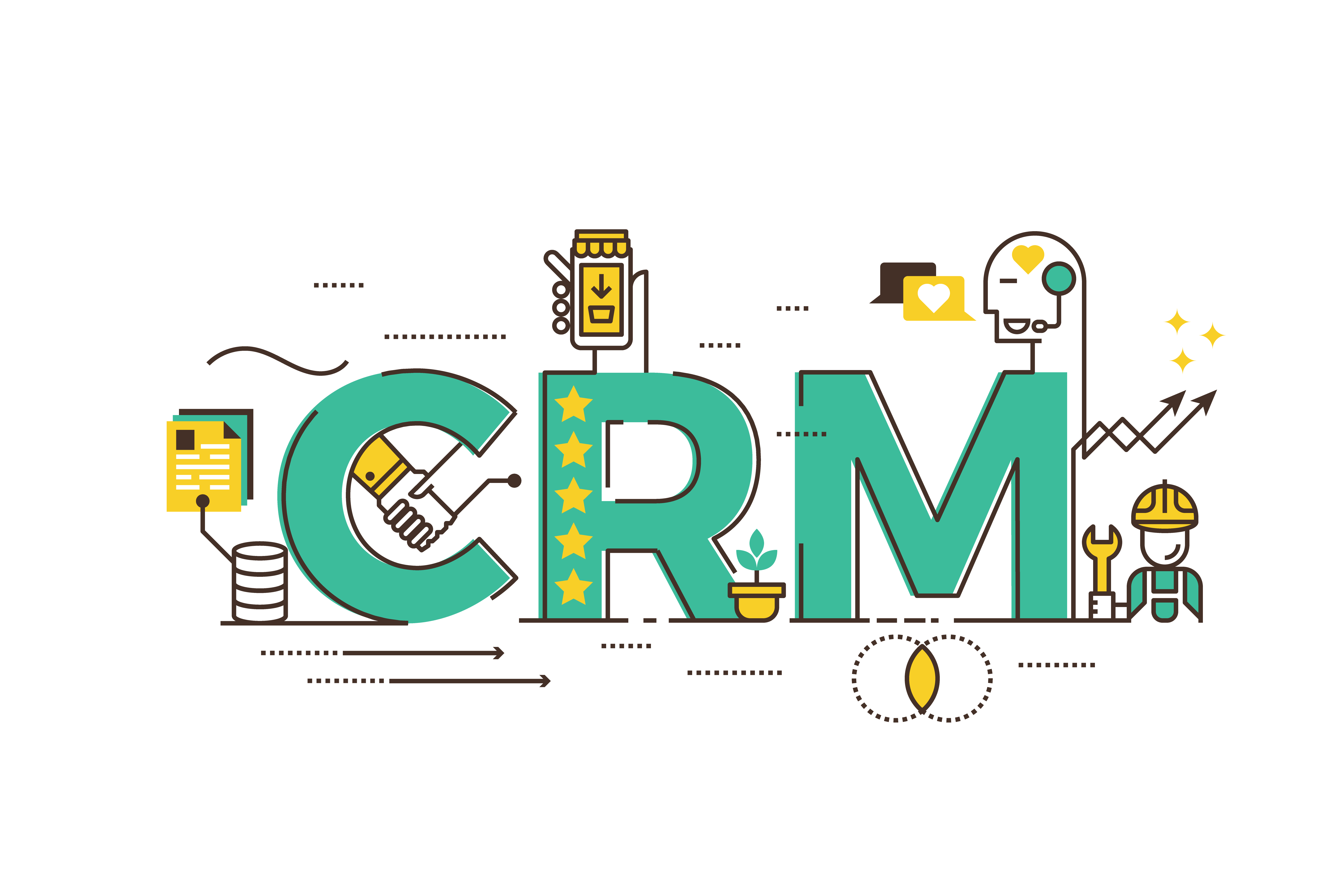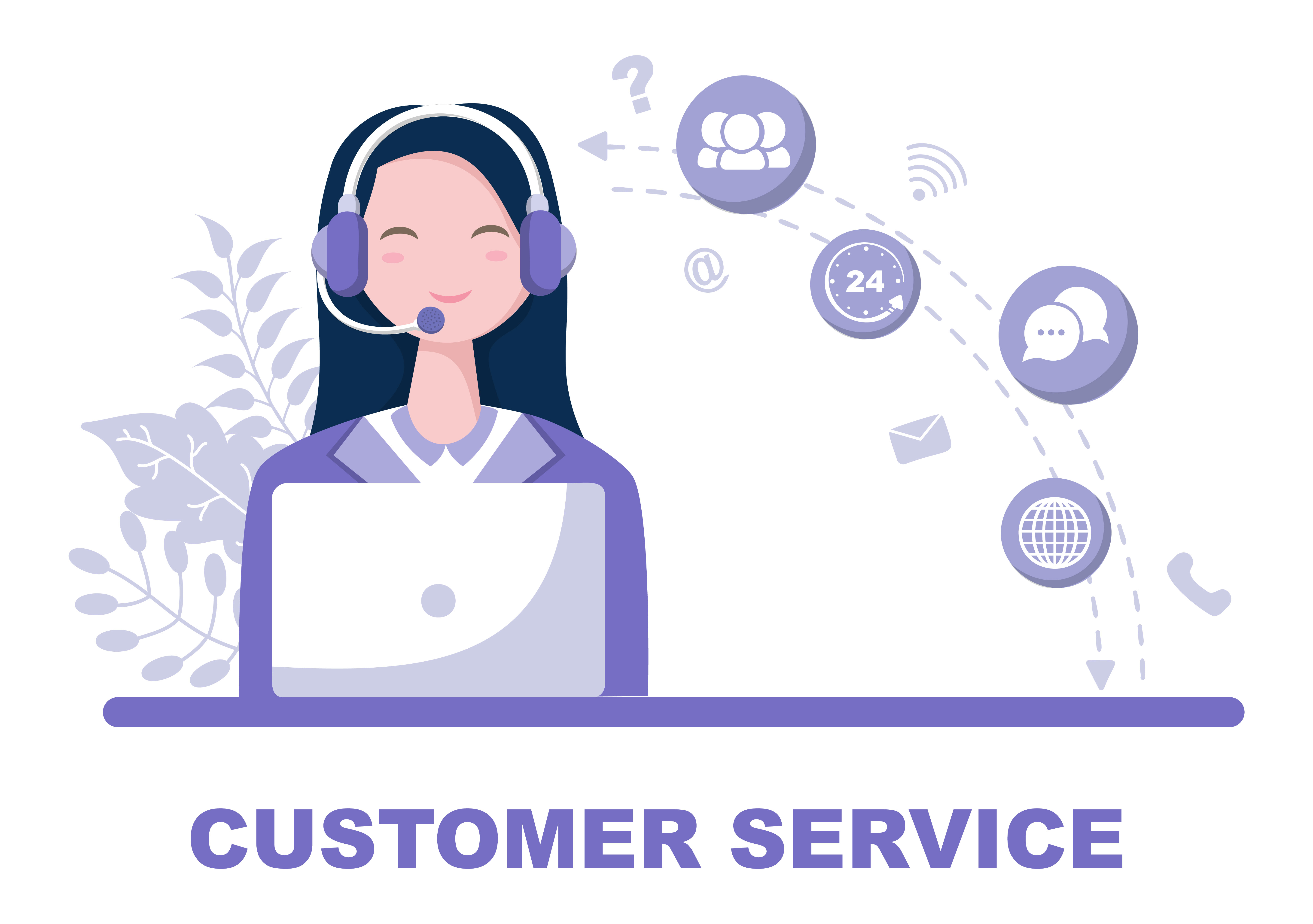
If your business is growing or you wish to expand it, you need custom CRM software. On average, those who use any CRM see a return of $8.71 for every dollar invested, according to Nucleus Research. Many businesses use CRM mainly for sales, as it helps organize customer information in one place.
It also keeps track of sales, potential sales, tasks, and follow-up actions. Salespeople rely heavily on contact data for motivation, meeting goals, and daily tasks, ensuring they have essential information for making sales.
Since sales are vital for a company, there are numerous free CRM software programs available, ranging from basic note and spreadsheet systems to more complex ones. As you explore your CRM options, remember these key points:
1.CRM You Choose Can Be Used for More Than Sales
Sales drive all aspects of a business, making CRM useful for informed decisions in various departments. This includes human resources, IT, supply chain, manufacturing, distribution, logistics, and accounting. A unified source of accurate information can control costs, and increase productivity, customer satisfaction, and revenue.
Choosing the right technology is important, but building a successful CRM system requires planning. Define your vision, whether revolutionizing customer service or becoming a regional market leader. Craft a vision statement, share it with the organization, and let it guide your strategy. Align daily tasks with the corporate vision, and use CRM software to create and track these tasks.
Getting everyone, especially executives, on board with CRM integration is crucial. CRM software often allows tracking and displaying metrics, aiding executives and sales reps in measuring progress toward goals.
2. The CRM Software You Choose Should Be Customizable
Many businesses start with a standard CRM system that tracks contacts, customers, opportunities, and orders. For small businesses considering CRM, growth plan. EQUP, for example, offers customizable options, allowing you to retain basic information as you upgrade and add features. This saves time and avoids costly software conversion issues.
To make it possible, you need to decide what steps you should take. CRM software helps measure how well you’re doing and keeps everyone on track, from executives to salespeople. It’s like having a helpful assistant that keeps things organized and grows with your business.
Should You Invest in a More Robust CRM Solution or Go for a Custom CRM?

Choosing the right CRM solution for your business involves weighing the pros and cons of pre-packaged versus customized options. Here’s a breakdown to help you make an informed decision:
1. Pre-Packaged Solutions: Some advise going for a pre-packaged CRM solution, which can offer a set of features at an expected price. However, the challenge lies in potentially having more features than you need and lacking specific functionalities crucial to your operations. It’s akin to settling for a size 12 mesh-top trainer when what you truly need is a size 9 snow boot. While your feet are covered, they might eventually get wet and cold.
2. The Middle Ground: Hybrid CRM Systems: A balanced approach involves building a CRM system that fits your needs by combining pre-programmed and custom apps. Many platforms provide access to hundreds of pre-built apps that you can seamlessly integrate into your system.
3. Fully Customized CRM Programs: Opting for fully customized CRM software is a strategic investment for businesses pursuing excellence. Despite being a commitment of time and resources, the tailored approach ensures precision in aligning features with the unique needs of the business, fostering optimized efficiency. The initial higher investment yields long-term value as the solution evolves with the business, accommodating growth and changes without significant overhauls.
Finding the right CRM software type ensures that your CRM system becomes a strategic asset that enhances efficiency and aligns with your organizational objectives.
What is Custom CRM software?
Custom CRM software is a tailored and personalized solution designed to meet the specific needs and requirements of a particular business or organization. Unlike off-the-shelf CRM software, which offers a standardized set of features for a broad range of users, custom CRM is built from the ground up or customized extensively to align precisely with the unique workflows, processes, and goals of a specific company.
The development or customization process involves creating a CRM system that addresses the distinct challenges and requirements of the business. This includes incorporating features that are directly relevant to the industry, streamlining specific processes, and ensuring seamless integration with existing systems and applications.
Custom CRM software offers flexibility, scalability, and the ability to adapt to the evolving needs of a business over time. It provides a more personalized approach to managing customer interactions, allowing for enhanced efficiency, improved productivity, and strategic data management. Security features can also be tailored to meet the specific data protection requirements of the organization.
Eventually, the goal of custom CRM software is to serve as a strategic tool that empowers businesses to manage and enhance their relationships with customers in a way that aligns precisely with their unique operational and strategic objectives.
How custom CRM software is different from customizable CRM software?
The terms “custom CRM software” and “customizable CRM software” might sound similar, but they refer to slightly different concepts in the realm of Customer Relationship Management (CRM). Here’s how they differ:
- Custom CRM Software
- Definition: Custom CRM software is a system that is built from the ground up to meet the unique and specific needs of a particular business or organization.
- Development: It involves the creation of a CRM solution tailored entirely to the business, often from scratch. This means that every feature, workflow, and functionality is designed to align precisely with the organization’s requirements.
- Flexibility: Custom CRM is highly flexible and can be adapted to evolving business needs. It may require a more extensive development process but provides a fully personalized and often unique solution.
- Customizable CRM Software
- Definition: Customizable CRM software refers to pre-existing CRM systems that offer flexibility in configuration and adaptation to suit the specific needs of a business.
- Configuration: Instead of building from scratch, businesses can modify and configure the existing CRM software to align with their processes. This often involves adjusting settings, adding or removing certain features, and tailoring the system to fit their requirements.
- Development Time: Customizable CRM solutions generally have a shorter development time compared to fully custom systems since they start with a pre-existing framework.
Thus, the main distinction lies in the degree of personalization and the starting point of the CRM solution. “Custom CRM software” is entirely built for a specific business, while “customizable CRM software” starts with a pre-existing system that can be modified to fit the unique needs of a business. Both options offer flexibility, but the depth of customization and the development process differ significantly.
Who needs custom CRM software?

Here are some scenarios and types of businesses that may find a custom CRM solution particularly advantageous:
- Businesses with Unique Processes: A manufacturing company with intricate production processes may benefit from a CRM system tailored to track and manage these specific workflows.
- Industry-Specific Needs: Healthcare providers may require a custom CRM solution to manage patient interactions, appointments, and healthcare-specific data in compliance with industry regulations.
- Growing Businesses with Evolving Needs: Startups or rapidly growing businesses may find a custom CRM valuable as it can adapt to their changing requirements and scale with the organization’s expansion.
- Complex Sales Cycles: Businesses with lengthy and multifaceted sales processes, such as enterprise-level B2B sales, may benefit from a CRM system tailored to their complex sales cycles.
- Companies with Diverse Product/Service Offerings: Businesses offering a wide range of products or services may require a custom CRM to effectively manage diverse customer interactions and sales processes.
- Stringent Data Security Requirements: Organizations operating in highly regulated industries like finance or legal services may need a custom CRM to ensure data security and compliance with industry-specific regulations.
- Unique Reporting and Analytics Needs: Businesses that rely heavily on specific metrics or require unique reporting structures may find a custom CRM solution more suitable for their analytical needs.
- Companies with Specific Integration Requirements: Businesses heavily dependent on certain applications or systems may benefit from a custom CRM solution that seamlessly integrates with their existing software ecosystem.
- Enhanced Customer Relationship Management Goals: Organizations prioritizing highly personalized customer interactions, unique customer journey mapping, and specialized customer service may find a custom CRM instrumental in achieving these goals.
- Service-Based Industries with Varied Client Needs: Consulting firms, agencies, or other service-based businesses may require a custom CRM to manage diverse client needs and project-specific data.
Businesses that recognize the limitations of off-the-shelf CRM solutions and seek a more tailored, efficient, and adaptable approach to customer relationship management are ideal candidates for custom CRM solutions. The decision to opt for a custom CRM should align with the specific requirements and strategic goals of the organization.
What are the benefits of custom CRM software?

CRM software provides several notable benefits that cater to the unique needs and processes of a business. Here are some detailed advantages:
- Tailored to Your Business Processes: Custom CRM software is designed to align seamlessly with the specific workflows and processes of your business. This ensures that the software is not a one-size-fits-all solution but rather a bespoke system that complements the intricacies of your operations.
- Enhanced Efficiency and Productivity: Since custom CRM is built with your business in mind, it eliminates unnecessary features and focuses on functionalities that directly contribute to your efficiency. This streamlining results in improved productivity as your team works with a system designed to meet their exact requirements.
- Flexibility and Scalability: Off-the-shelf CRM solutions may struggle to adapt to the evolving needs of your business. Custom CRM software, on the other hand, is inherently flexible and scalable. It can be easily adjusted as your business grows, ensuring that it continues to meet your unique requirements over time.
- Improved Customer Relationships: The primary goal of CRM is to manage and enhance customer relationships. Custom CRM software allows you to create a system that specifically caters to your customer interaction needs. This can lead to more personalized communication, better customer satisfaction, and increased loyalty.
- Strategic Data Management: Custom CRM enables you to manage and analyze data strategically. You can define the types of data you want to collect and how it should be organized. This results in more meaningful insights that can guide your business strategies and decision-making processes.
- Cost-Effective in the Long Run: While the initial investment for custom CRM development may seem higher, it often proves cost-effective in the long run. You won’t be paying for features you don’t need, and the system can evolve with your business without the need for major overhauls or replacements.
- Integration with Existing Systems: Custom CRM software can be seamlessly integrated with your existing systems and applications. This integration ensures a smooth flow of data across different departments, reducing the need for manual data entry and minimizing errors.
- Enhanced Security Measures: Security is a top priority in custom CRM development. You have control over the security features implemented, ensuring that sensitive customer data is well-protected. This is particularly crucial in industries with strict data privacy regulations.
- Adaptability to Industry Specifics: Different industries have unique requirements. Custom CRM allows for the inclusion of industry-specific features, ensuring that the software caters to the particular needs and challenges of your business sector.
In conclusion, custom CRM software empowers businesses with a personalized, efficient, and adaptable solution that goes beyond the limitations of off-the-shelf alternatives. It serves as a strategic tool to enhance customer relationships, streamline operations, and drive overall business success.
Building Custom CRM Systems with EQUP
Breaking free from the constraints of off-the-shelf CRM systems, EQUP offers a transformative solution tailored to meet the unique requirements of your business. Unlike pre-packaged options, EQUP understands the limitations of limited flexibility, irrelevant features, and steep learning curves.
Businesses in search of a CRM system that aligns seamlessly with their distinct processes and evolving needs find EQUP’s custom-built CRM solutions increasingly appealing. It empowers you to construct a CRM system that precisely mirrors your operations.
With EQUP’s easy-to-use platform, you have the power to create a CRM that matches how your work is done. Make your sales work smoother, help different departments work together better, and offer top-notch customer service using a CRM system made just for your business. The best part is that you won’t have to pay fees for each person using it anymore.
How EQUP Helps You Improve Your Customer Service?

1.Free Unlimited Users
EQUP’s revolutionary pricing model not only enables unlimited access to your CRM for all team members but also ensures this access comes with no additional costs. This commitment to inclusivity fosters whole-team engagement, empowering every member to utilize the system without concerns about extra fees.
2. Start Small, Grow Big
Adapt the flexibility of EQUP by adjusting and expanding your CRM as your business evolves. This adaptability allows you to commence with a system that perfectly aligns with your present needs and seamlessly scales up as your business grows. EQUP grows with you, meeting the changing demands of customers and your expanding business.
3. Easy-to-Use Design
EQUP has a user-centric design, ensuring that your team can effortlessly understand and navigate the CRM. This emphasis on simplicity promotes seamless adoption, leading to maximum productivity. EQUP’s commitment to an easy-to-use interface enhances user experience and efficiency.
4. Streamlined Customer Experiences
You can harness the power of omnichannel capabilities with EQUP’s seamless integration of your custom CRM with existing systems and applications. This strategic integration ensures a cohesive and unified experience for your customers across various channels, contributing to enhanced customer satisfaction and loyalty. You can call, text message, WhatsApp, and email directly through EQUP’s account.
5. Analyze Behaviors for Targeted Interactions
EQUP allows you to conduct a comprehensive analysis of your customers’ behaviors by monitoring their sales journey and interactions with your business. Strategically target them for specific actions such as cross-selling, up-selling, and sending reminders for abandoned carts. Keep a close eye on key email metrics, including receipt, opening, clicking, bouncing, marking as spam, and unsubscribing. Monitor landing page visits, track products purchased, analyze the time spent on your website, and observe submitted forms. You can also keep tabs on customers entered into campaigns and track payment activities for a holistic understanding of customer engagement and potential opportunities for personalized interactions.
6. Streamline Appointments
Stay on top of your schedule by either setting appointments yourself or assigning them to your team for enhanced communication and collaboration using EQUP. You can also keep track effortlessly with notifications on both the dashboard and email for all your scheduled appointments. You can seamlessly create, update, and assign appointments to team members, ensuring everyone stays in the loop and tasks are efficiently managed.
7. Effortless Task Management & Team Collaboration
EQUP empowers you to oversee, monitor, and modify your tasks based on your timetable or delegate them to your team, ensuring that your business remains unaffected even during busy periods. Stay informed through notifications on both the dashboard and email regarding task-related activities, from task creation and updates to assigning tasks to team members and tracking task statuses.
8. Document Integration
Files play a crucial role in advancing business operations, and to support your transition to a fully digital environment, EQUP allows you to incorporate documents and easily share them within the platform. Additionally, you have the flexibility to include notes along with detailed descriptions wherever necessary.
9. Effortless Invoicing and Quoting
The platform efficiently stores comprehensive details of every transaction with your clients, removing the necessity of maintaining physical files. It simplifies the process of tracking invoices and quotes for each client, offering a convenient and centralized solution. Users can easily access, create, send, and approve quotes directly through the platform, streamlining the workflow and enhancing overall efficiency.
10. Proactive Follow-Ups
Your website serves as the primary interface for your business, representing its image to customers as their initial point of interaction. Evaluate the impact of your first impression and proactively reach out to customers through follow-up communications to enhance conversion rates effectively.
11. Contact Purchase History
Explore the buying patterns of your contacts within EQUP. This feature allows you to strategize targeted marketing efforts for cross-selling and up-selling initiatives, enhancing your ability to tailor promotional activities based on individual purchase history.
12. Comprehensive Deal Tracking
Effortlessly keep tabs on all interactions related to a specific contact by navigating to their dedicated contact details page. Here, you can seamlessly generate new deals, review existing ones, assign a designated owner to each deal, and make updates to both the deal information and its corresponding stage. This streamlined approach ensures a comprehensive and organized tracking of all deals associated with an individual contact, enhancing efficiency in managing business transactions.
13. Import Contacts
EQUP offers versatile options for importing contacts into your system. Whether you prefer the convenience of uploading from a CSV/Excel file or the seamless integration using our API, EQUP ensures a hassle-free process to bring your contacts from your website into the system. With features like assigning contact owners, applying tags, specifying contact sources, adding custom fields, and efficiently managing duplicates—either by ignoring or overwriting them—EQUP empowers you with robust tools for effective contact management tailored to your preferences and needs.
14. Advanced Segmentation
By utilizing EQUP to import and manage your contacts, you gain the capability to categorize them according to behavior, demographics, and geography. This flexibility empowers you to tailor your targeting strategies based on specific criteria, enabling more personalized and effective communication. Behavioral segmentation allows for a nuanced approach, demographic categorization provides insights into key characteristics, and geographical segmentation facilitates targeted outreach to specific regions. EQUP’s comprehensive segmentation options enhance your ability to connect with contacts in a way that aligns precisely with your preferences and marketing objectives.
Conclusion
EQUP emerges as an ideal choice for startups and small businesses seeking custom CRM management software tailored to their unique needs and growth trajectories. For these enterprises, flexibility, scalability, and cost-effectiveness are paramount, and EQUP delivers on all fronts. With a pricing model that offers free access for all team members, startups can foster whole-team engagement without the burden of additional costs. The ability to start small and seamlessly scale up aligns perfectly with the dynamic nature of startups, allowing them to adapt their CRM as their business expands.
EQUP’s commitment to an easy-to-use design ensures swift adoption, promoting maximum productivity within smaller teams. Moreover, EQUP’s emphasis on streamlined customer experiences, top-notch security, and versatile deployment options makes it a comprehensive and strategic CRM solution for startups and small businesses aiming for efficiency, growth, and success.